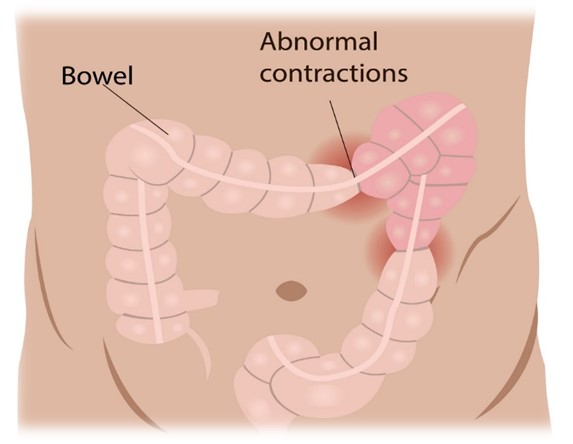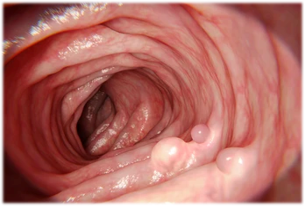Download PDF, 1.34MB, PDF
What Is Constipation?
You are constipated if you have fewer than three bowel movements a week.
Chronic constipation is when you experience infrequent bowel movements or have difficulty passing stools for several weeks or longer.
Note: Passing stools is called bowel movement
What Causes Constipation?
- Lack of fiber (commonly found in vegetables, fruits, nuts, seeds, etc.)
- Lack of exercise
- Insufficient drinking of water
- Frequently ignoring the urge to pass motion
- Medications that cause constipation as a side effect (e.g. painkillers containing codeine, anti-depressants, iron supplements, etc.)
- Pregnancy
- Emotions such as stress, grief or anxiety
- Medical conditions (e.g. diabetes, stroke, Parkinson’s disease)
- Diseases of the digestive system (e.g. colon cancer)

Constipation caused by Irritable Bowel Syndrome (IBS)
What Are The Symptoms Of Constipation?
You may have constipation if you notice that your bowel movements are:
- Too hard
- Too small
- Hard to get out
- Happening fewer than three times a week
How Is Constipation Diagnosed?
Tests are usually not required to diagnose/ identify constipation because the symptoms (characteristics that indicate the presence of a disease/condition) are obvious.
However, your doctor may advise you to do tests if you show the following symptoms:
- When constipation is a new symptom and the cause is not clear (e.g. it could be due to a change in your diet)
- The symptoms you experience are severe and laxatives (medications that treat constipation) do not help
- Blood in stools
- Weight loss
- The problem comes and goes, but lasts for longer than three weeks
- Family history of colon cancer
Common tests that you may need to do to identify constipation include:
- Blood tests to check your blood count, etc.
- Sigmoidoscopy/Colonoscopy to check the inside of your large intestine

Inside of large intestine using colonoscopy
What Treatment Options Are Available?
Depending on the cause of constipation, some available treatments could include:
- Lifestyle modifications (more information on the back of this brochure)
- Laxatives which are medications that you swallow or put into your rectum to promote bowel movements (pass motion), but should not be used for long periods of time unless instructed so by your doctor
- Changing medications that you are taking for other conditions
What Lifestyle Modifications Can I Make?
These changes may help with your constipation symptoms:
Dos:
- Increase Your Fiber Intake
- Consume foods that have a lot of fiber such as fruits, vegetables, prune juice, and cereal.
- Drink Plenty of Water and Other Fluids
- Exercise Regularly
- Physical activity can help to keep stool moving through your colon (large intestine).
Dont's
- Do not hold back your urge to go to the bathroom
If the above measures do not help improve your bowel movement, please seek medical attention from your healthcare professional.
